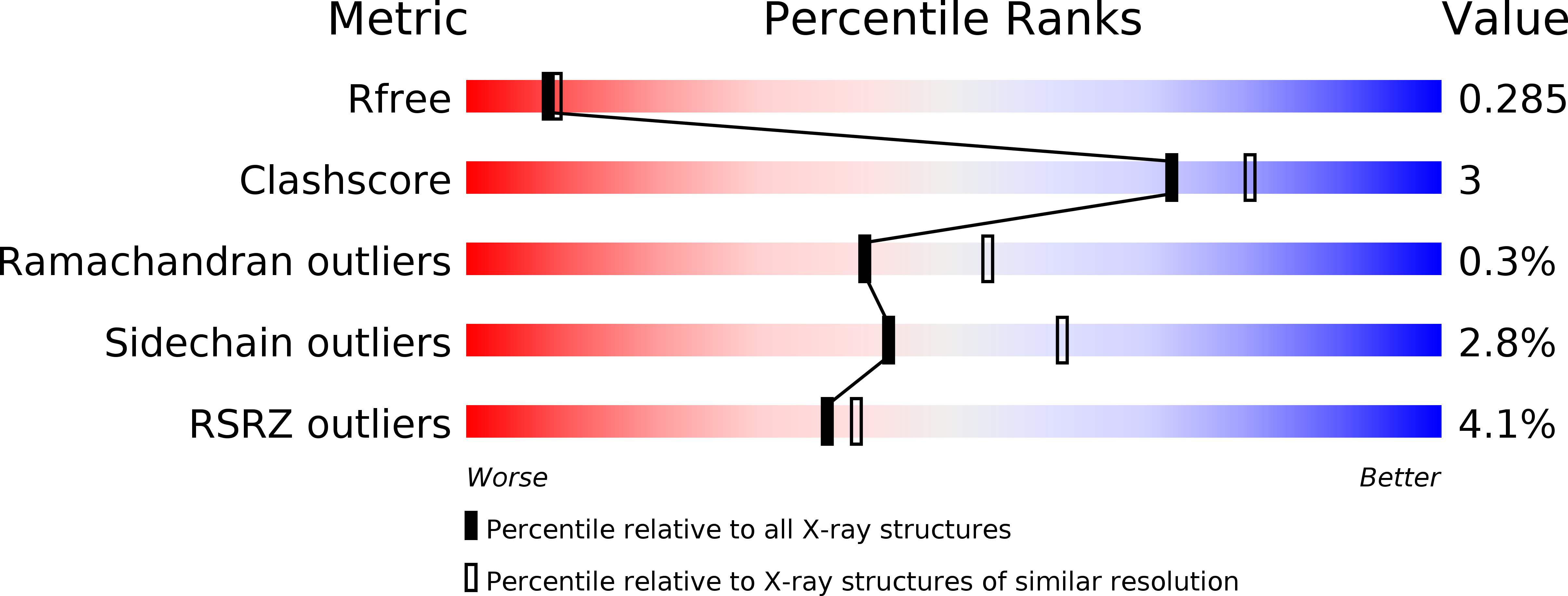
Deposition Date
2013-02-15
Release Date
2013-04-24
Last Version Date
2024-04-03
Entry Detail
PDB ID:
3W6K
Keywords:
Title:
Crystal structure of dimer of ScpB N-terminal domain complexed with ScpA peptide
Biological Source:
Source Organism(s):
Geobacillus stearothermophilus (Taxon ID: 1422)
Expression System(s):
Method Details:
Experimental Method:
Resolution:
2.37 Å
R-Value Free:
0.28
R-Value Work:
0.23
R-Value Observed:
0.23
Space Group:
C 1 2 1


